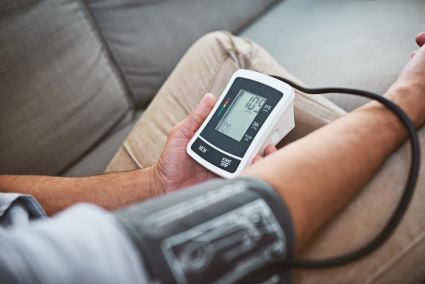Exercise - Can It Reduce The Pressure?
Posted by Jeremy Windsor on Jun 10, 2019
As a group of outdoors enthusiasts we don’t need reminding that regular exercise is good for us. But perhaps, sometimes, our patients need a little encouragement! Recently I saw a patient in our pre-assessment clinic who had managed to come off a cocktail of drugs that were treating his high blood pressure. How did he do it? He reduced his working hours and filled the time with swimming, cycling and walking. Over the course of two years his blood pressure had returned to normal and one by one his medications were stopped. This experience is borne out by an exhaustive meta-analysis recently published in the British Journal of Sports Medicine.
The authors identified a total of 391 randomised controlled trials (RCT’s) – 194 that evaluated the effect of exercise and 197 the effect of common medications such as ACE inhibitors, beta blockers and diuretics upon systolic blood pressure. In all, the trials recruited 39,742 participants. Unfortunately, the researchers were unable to find a single RCT that directly compared the effect of exercise and medication. However their findings did go some way to comparing the effect of exercise and drugs upon systolic blood pressure.

According to the Oxford Handbook of Sports and Exercise Medicine (2nd Edition), the incidence of high blood pressure rises from 20% in those aged over 40 to 60% in adults aged 60 or older. High blood pressure is one of the leading risk factors for diseases such as stroke, myocardial infarction and chronic kidney disease. Treating high blood pressure, through exercise or medication, can dramatically reduce the incidence of these conditions.
At the outset it’s worth saying that the meta-analysis confirms what we probably knew already - exercise and medication both reduce systolic blood pressure. However what this study does for the first time is to make a direct comparison between the two. Compared with controls, regular exercise in those with high blood pressure (>140/90mmHg) reduced systolic blood pressure by 9mmHg. A similar reduction was noted with the administration of drugs. This lead to the authors concluding, “the systolic blood pressure lowering effect of exercise among hypertensive populations appears similar to that of commonly used anti-hypertensive medications.†However the authors were careful to do add a note of caution. The dozens of different exercise regimes and drug treatments included in this meta-analysis meant that any comparison of a specific exercise or drug was very difficult to make.
Nevertheless it appears that regular exercise may prove to be just as effective as drugs in lowering systolic blood pressure. However, as the authors of the meta-analaysis note, the duration, frequency and form of exercise still need to be determined.
Comments
Leave a comment.
Leave a comment.



 )
)